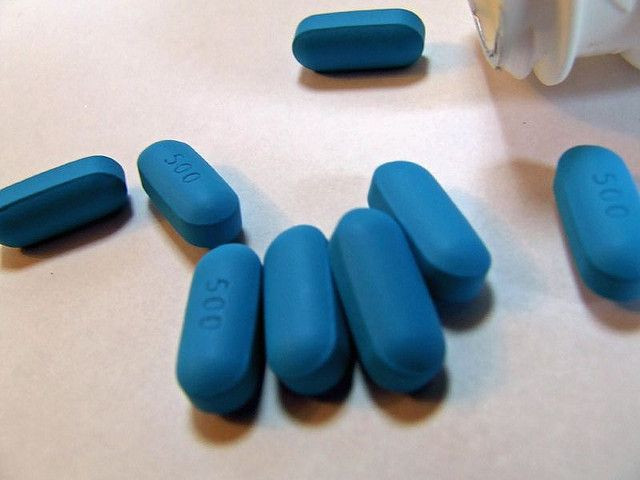Valtrex For Genital Herpes Might Also Treat Patients With HIV Virus

Valtrex is a drug commonly prescribed to people with genital herpes. It won’t cure herpes, but it works to prevent breakouts, including sores and blisters. But in an interesting (small) trial, Valtrex additionally benefitted HIV-1 infection.
HIV-1 and HIV-2 share similarities, but it’s believed HIV-2 is harder to pass on to another person and is less likely to progress to AIDS. When HIV patients who also had herpes were taking Valtrex — formally known as valacyclovir — researchers noticed their HIV infection was improving, too. Researchers tested this on patients only infected with HIV, not herpes, to see if it had a similar effect and it did.
As it turns out, Valtrex is activated in virus-infected cells, and then blocks the ability of HIV to reproduce. Leonid Margolis of the National Institute of Child Health and Human Development (NICHD), who led the study, told NBC News that “these findings are very encouraging.” Margolis was actually skeptical of the initial idea Valtrex helped reduce HIV levels and decreased the immune activation of herpes, ultimately keeping the infection from spreading widely.
After he tested a drug similar to Valtrex, which was formally known as Acyclovir, he saw the drugs still blocked HIV-1 production in the absence of herpes, findings which inspired the present clinical trials. NBC reported that when patients took Valtrex, the amount of HIV found in their blood significantly declined.
Outside of this research, studies have shown fighting HIV with drugs helps patients stay well and makes them less likely to infect another person.
"The drug might be an agent that can be used safely in some people with HIV infection who have a form of HIV that is highly resistant to other antiretroviral drugs," said Dr. Michael M. Lederman, senior study author, in a press release. "Valacyclovir might well augment the cocktail of medications they take for reducing HIV replication. Valacyclovir is a well-tolerated drug, and it doesn't have a lot of side effects."
Margolis added the next step is to confirm these findings in a larger cohort study.
UNAIDS, the Joint United Nations Program on HIV/AIDS reported new HIV infections have fallen by 33 percent since 2001 — 2.3 million people worldwide became newly infected in 2012 compared to 3.4 million newly infected in 2001.
Source: Vanpouille C, et al. Valacyclovir Decreases Plasma HIV-1 RNA in HSV-2 Seronegative Individuals: A Randomized Placebo-Controlled Crossover Trial. Clinical Infectious Diseases. 2015.
Published by Medicaldaily.com



























